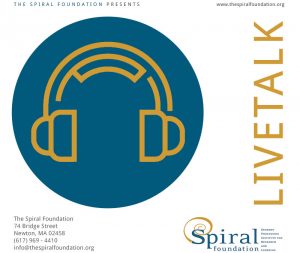Description
Featuring: Teresa May-Benson, ScD, OTR/L, FAOTA
originally recorded January 22, 2018
LiveTalks are hour long audio-only podcasts. This LiveTalk is part of the Clinical Reasoning in Sensory Integration bundle.
Description: How do you approach intervention for the various vestibular dysfunctions present in individuals with sensory integration problems? This live talk will discuss the clinical reasoning behind interpretation of assessment data and determination of why, what, when, and how to treat vestibular dysfunctions such as vestibular hyper-responsivity, gravitational insecurity, and vestibular discrimination problems. Case studies will be used to illustrate key points and intervention strategies will be discussed.
Learning Objectives:
By the end of this LiveTalk listeners will be able to:
- State components of the clinical reasoning process for identifying and treating vestibular dysfunctions.
- Distinguish which assessment data supports identification of specific vestibular dysfunctions.
- Identify at least two intervention strategies for each type of vestibular dysfunction discussed.
Course Level: Introductory. There are no prerequisites for this course.
Suitable For: Occupational Therapists, OT Assistants, Physical Therapists, PT Assistants, Psychologists, Parents, Teachers.
AOTA
Domain: Client Factors
Process: Intervention
Contact Hours: This course is worth 1.0 contact hours or 0.1 AOTA CEUs.
Completion Requirements: To receive contact hours for this course you must listen to the recorded LiveTalk in its entirety, and complete the accompanying assessment.
About the Speaker: Teresa A. May-Benson, ScD, OTR/L, FAOTA is the Executive Director of the Spiral Foundation as well as a practicing occupational therapist at OTA The Koomar Center. She is active in conducting research related to sensory integration through the Spiral Foundation’s Sensory Processing Research Center and Laboratory. She is a well-known lecturer and researcher on sensory integration theory and intervention, has authored book chapters and articles on praxis and sensory integration, and completed her doctoral dissertation on ideational praxis. Dr. May-Benson received her bachelor’s degree from Ohio State University and her master’s degree from Boston University with a concentration in sensory integration and school system therapy. She was a Maternal and Child Health Fellow in the Doctoral Program in Therapeutic Studies at Boston University. She has received the Virginia Scardinia Award of Excellence from AOTA for her work in ideational praxis.
ADA/Section 504: If you require special accommodations, please contact the Spiral Foundation at admin@thespiralfoundation.org or (617) 969-4410 ext. 231.
Continuing Education:

Occupational Therapy Practitioners/ Occupational Therapy Assistants: The Spiral Foundation is an Approved Provider of Continuing Education for occupational therapists and occupational therapy assistants by the American Occupational Therapy Association. The assignment of AOTA CEUs does not imply endorsement of specific course content, products, or clinical procedures by AOTA.



Reviews
There are no reviews yet.